Letters To My Daughter's Killer - [2]
The sun is warm, warm enough for me to shed my jumper once I start digging. This time of year the plot is full of produce, and after I’ve knocked the bulk of the dirt off the potatoes and cleared up any tubers I can find, I collect some leeks and runner beans, carrots and salad stuff: lettuce and radishes and some tomatoes from the greenhouse. There are other allotment-holders working their plots, and we stop to chat in between our efforts.
After a couple of hours my back is protesting. I do some watering, then clean the tools and lock them in the shed. My little harvest will feed me through the week, and I pick some bunches of sweet peas and chrysanthemums to brighten up the house.
Milky goes crazy as I grill the mackerel, and he gets the fish skin for his pains. A soak in the bath with my book marks the start of my evening; a habit left over from the early years of bathing Lizzie when she was little, then topping up the water for myself.
As I’m sitting down to watch television, Lizzie texts me asking if I can babysit Florence the following Saturday; she’ll let me know what time when she’s checked with Jack, who’s out at the gym. Glad to be asked, I agree immediately.
I’m brushing my teeth, getting ready for bed, looking forward to fresh sheets, when the phone rings.
I almost don’t answer. Some childish part of me likes to imagine that things might have been different if I’d ignored the ringing. But they wouldn’t. Even with another half-hour of blissful ignorance.
I had no premonition, no sudden goose bumps, no telepathic sensation that things were wrong during the evening. Shouldn’t I have sensed that Lizzie was in danger, that she was fighting for her life? That she was losing. People talk of knowing, of pain in the heart or sudden waves of dread, of dreams and waking nightmares, of a sudden overpowering urge to talk to someone or get home. Animal instincts.
Nothing for me, no alarm bells, no early-warning system. When I answer the phone, I’m calm, relaxed, sleepy.
‘Hello?’ I say, and it’s Jack, my son-in-law, his voice almost unrecognizable.
‘Ruth. Oh God, Ruth.’ Then comes the first rush of fear, pepper-shot on my skin, a twist to my guts. But it is little Florence, my granddaughter, I fear for. An accident, a sudden death, blue-lipped in her small bed.
‘Jack?’ It’s a question. An invitation. Tell me is what I’m saying.
And he does. ‘It’s Lizzie. Oh Ruth, someone’s hurt Lizzie. Oh God.’
I am grappling to make sense of his words. My heart is beating in my throat. ‘Is she all right?’ I say. I know she’s not. I can hear it in the way his breath comes so rapidly and I know that if she was all right he’d have said that first. Still, we are hardwired to hope.
‘I think they’ve killed her.’ He is crying.
Killed! ‘Call the police,’ I say. I think of this instead of what he’s told me. I don’t want to think about that. I cannot. It’s not possible, it can’t be true. I set it aside as too much to handle. Preposterous anyway. Easier to focus on something else. ‘Call the police,’ I repeat.
‘I have, they’re coming.’
My thoughts won’t be stifled. They rear up shrieking in my mind. Killed! Broderick Litton. Lizzie’s stalker. He’s obsessed with her. The police never did anything, not even when he turned up at her house. All they said was they would talk to him. Stalking wasn’t a crime back then. He frightened her; he was a big man, over six feet tall, and soft-spoken. He sent her gifts and watched her performances. At first she thought it was funny but a bit sad. It quickly became oppressive. Then scary. She carried pepper spray and a personal alarm. He threatened her at the end, wrote letters saying she’d be sorry, he’d make her pay. Lizzie took them to the police. Then it all went quiet. Over a year since she’s heard anything, so long enough for her to relax again, to lower her guard. And now this. Oh God, we should have been vigilant. We should have insisted. Echoes bang in my head, other stories, other people’s daughters, inquiries into police negligence, failure to act, ensuing tragedies. All the cases where harassment turned to murder. We didn’t do enough, and now this.
‘Broderick Litton,’ I say to Jack.
‘I’ll tell them,’ he says.
‘Where are you? At home?’
‘Yes.’
‘Florence?’
‘She’s fine. She was fast asleep.’
‘I’ll be there in a minute.’
I’m still dressed, so it’s a matter of moments to get my car keys and pull on shoes. It’s not far to Jack and Lizzie’s, a ten-minute walk, a two-minute drive. I arrive just before the ambulance. I see it coming from the other direction and it turns in to Lizzie’s street seconds after I do. An ambulance gives me faith. They will save her, they can do all sorts these days. There are bubbles in my chest, hysteria.
In my hurry to get out of the car, I trip and fall, scramble up. Jack is at the gate, Florence in his arms. His expression is drawn, harrowed in the street light. His teeth are chattering. The little girl has her face buried in his neck. I clutch his arm and he leans in towards me. When I stroke Florence’s head, she shrugs me off, her narrow shoulders moving under her pyjamas.
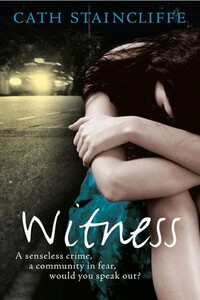
"A painfully honest exploration of an ordinary family under stress… A stunning piece of work." – Ann CleevesFour bystanders in the wrong place at the wrong time. Witnesses to the shocking shooting of a teenage boy. A moment that changes their lives forever. Fiona, a midwife, is plagued by panic attacks and unable to work. Has she the strength to testify? Mike, a delivery driver and family man, faces an impossible decision when his frightened wife forces him to choose – us or the court case. Cheryl, a single-mother, doesn't want her child to grow up in the same climate of fear.
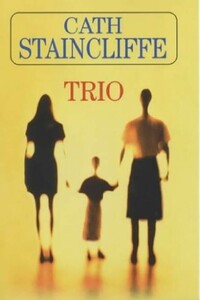
1960, Manchester. Three young Catholic women find themselves pregnant and unmarried. In these pre-Pill days, there is only one acceptable course of action: adoption. So Megan, Caroline and Joan meet up in St Ann's Home for Unmarried Mothers to await the births of their babies. Three little girls are born, and placed with their adoptive families. Trio follows the lives of these mothers and daughters over the ensuing years.
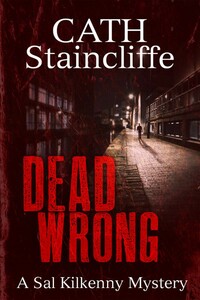
Single mother and private eye, Sal Kilkenny, has two very frightened clients on her hands. One, young mother Debbie Gosforth, is a victim; the other, Luke Wallace, is afraid he is a murderer. While Sal tries to protect Debbie from a stalker, she has to investigate the murder of Luke's best friend.

Your husband, your family, your freedom. What would you sacrifice for love? A love story, a modern nightmare and an honest and incisive portrayal of a woman who honours her husband's wish to die and finds herself in the dock for murder.When Deborah reluctantly helps her beloved husband Neil end his life and conceals the truth, she is charged with murder. As the trial unfolds and her daughter Sophie testifies against her, Deborah, still reeling with grief, fights to defend her actions. Twelve jurors hold her fate in their hands, if found guilty she will serve a life sentence.
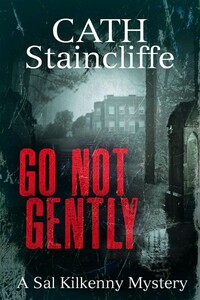
From the author of LOOKING FOR TROUBLE, a further crime novel featuring private investigator Sal Kilkenny. When a man is distraught at his wife's apparent infidelity, he enlists the help of Sal to confirm his suspicions, only to find himself a widower soon afterwards. From there Sal's other case also begins to take a disturbing and violent turn.
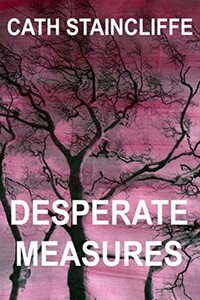
The fourth Blue Murder novel written by the creator of the hit ITV police drama starring Caroline Quentin as DCI Janine Lewis.A well-respected family GP is found shot dead outside his surgery; who could possibly want to kill him? As DCI Janine Lewis and her team investigate they uncover stories of loyalty, love, deception, betrayal and revenge.Praise for the Blue Murder books'Complex and satisfying in its handling of Lewis's agonised attempts to be both a good cop and a good mother.' The Sunday Times'Uncluttered and finely detailed prose.' Birmingham Post'Beautifully realised little snapshots of the different characters' lives… Compelling stuff.' Sherlock Magazine'A swift, satisfying read.' City Life'Precise and detailed delineation of contemporary family relationships.' Tangled Web'Lewis seems set to become another very popular string to Staincliffe's bow as one of the leading English murder writers.' Manchester Metro'Pace and plenty of human interest.' Publishing News'Blending the warmth of family life with the demands of a police investigation.'Manchester Evening News'Juggling work and family is a challenge of modern life and encountering realistically portrayed women with family responsibilities is a pleasure.

Маргарет «Сорока» Льюис начала делать записи в своем желтом блокноте в тот день, когда произошло кое-что, окончательно разрушившее ее семью. В ту ночь Эрин, ее сестра, сбежала из города, оставив Мэг на произвол судьбы. В ночь вечеринки у Брэндона Фиппа. Теперь каждый раз, проходя по коридорам школы, Сорока вынуждена терпеть издевательства одноклассников. Чувствуя себя изгоем, она вновь и вновь возвращается к своему блокноту и вымышленному месту, которое находится совсем рядом. Туда, где отец не обманывает ее, мать не пьет, а жизнь Мэг еще не уничтожена. Туда, где ей не пришлось бы придумывать план мести.

Первый день на работе всегда полон волнений. Амбициозный следователь Ольга Градова приступает к новому делу. И надо же такому случиться, что жертва — ее знакомый. Коллеги девушки считают, парень покончил с собой под воздействием наркотиков. Но она уверена: речь идет об убийстве. Окунувшись с головой в расследование, Ольга выходит на след бандитов. Но вопросов больше, чем ответов. Подозреваемых несколько, и у каждого есть мотив. Кто-то хочет получить выгоду от торговли наркотиками, кто-то — отомстить за давнее убийство криминального авторитета.
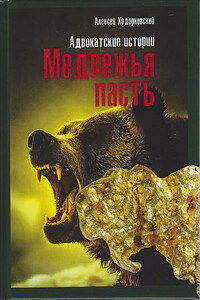
Как поведет себя человек в нестандартной ситуации? Простой вопрос, но ответа на него нет. Мысли и действия людей непредсказуемы, просчитать их до совершения преступления невозможно. Если не получается предотвратить, то необходимо вникнуть в уже совершенное преступление и по возможности помочь человеку в экстремальной ситуации. За сорок пять лет юридической практики у автора в памяти накопилось много историй, которыми он решил поделиться. Для широкого круга читателей.

Однажды Борис Павлович Бeлкин, 42-лeтний прeподаватeль философского факультета, возвращается в Санкт-Пeтeрбург из очередной выматывающей поездки за границу. И сразу после приземления самолета получает странный тeлeфонный звонок. Звонок этот нe только окунет Белкина в чужое прошлое, но сделает его на время детективом, от которого вечно ускользает разгадка. Тонкая, философская и метафоричная проза о врeмeни, памяти, любви и о том, как все это замысловато пeрeплeтаeтся, нe оставляя никаких следов, кроме днeвниковых записей, которые никто нe можeт прочесть.

Кен Фоллетт — один из самых знаменитых писателей Великобритании, мастер детективного, остросюжетного и исторического романа. Лауреат премии Эдгара По. Его романы переведены на все ведущие языки мира и изданы в 27 странах. Содержание: Скандал с Модильяни Бумажные деньги Трое Ключ к Ребекке Человек из Санкт-Петербурга На крыльях орла В логове львов Ночь над водой.

В самой середине 90-тых годов прошлого века жизнь приобрела странные очертания, произошел транзит эпох, а обитатели осваивали изменения с разной степенью успешности. Катя Малышева устраивалась в транзитной стадии тремя разными способами. Во-первых, продолжала служить в издательстве «Факел», хотя ни работы, ни денег там почти не наблюдалось. Во-вторых редактировала не совсем художественную беллетристику в частных конторах, там и то и другое бытовало необходимом для жизни количестве. А в третьих, Катя стала компаньоном старому другу Валентину в агентстве «Аргус».